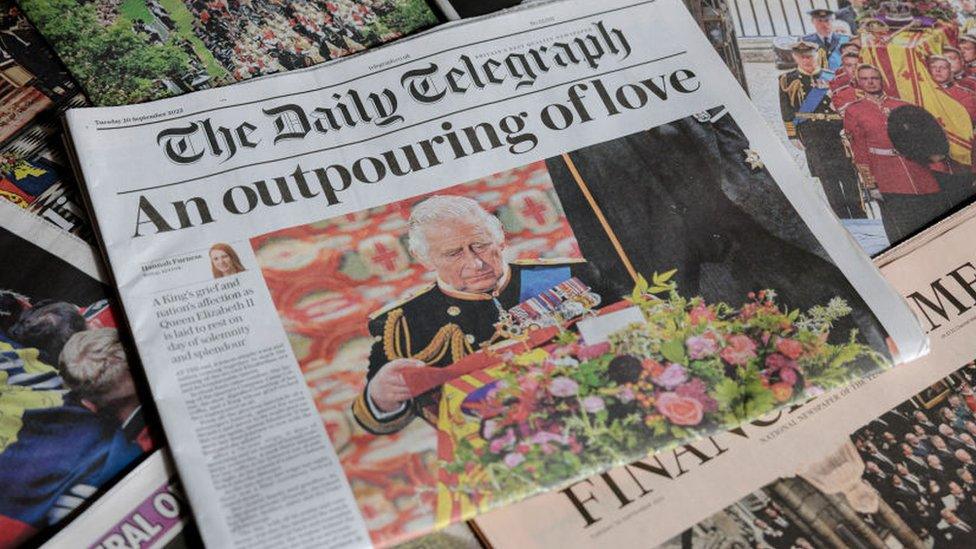What's going on in the battle for the Telegraph?
- Published

When trying to understand what's happening in a complex business situation, focusing on motivation can simplify things.
So, let's try and apply that technique to the struggle for control of the Telegraph newspaper and Spectator magazine. Why is a Gulf state poised to seize control of these politically influential titles?
What's in it for the various parties to this drama?
Firstly we should ask what's in it for Lloyds Bank - lender to existing owners the Barclay Family. This is easy. They are owed £1.15bn by a family they have been chasing for this debt for over a decade.
An offer to get their money back in full is better than they had hoped and is all they need or want to walk away happy.
How about the Gulf investor, International Media Investments (IMI) of Abu Dhabi, which is doing this deal in partnership with the US investment firm Redbird? Also easy.
They get to own influential political assets for "only" £600m. A fraction of the price of buying a top-tier Premier League football club or hosting a World Cup. Plus, they get the other £600m secured against other bits of the Barclay family empire.
When it comes to former CNN boss Jeff Zucker, who would take over as chief executive of the Telegraph and Spectator, he both gives and gets. He gives the Gulf bid the credibility of a former internationally respected news chief and gets an arms-length deep-pocketed investor to help him break into new digital US news markets dominated by big name centre left titles like the New York Times and the Washington Post.
Other bidders have told the ┤¾¤¾┤½├¢ that - apart from the Wall Street Journal - there is no higher brow equivalent on the political right and cite the US success of The Mail online.
The Barclay family. This is the head scratching one. They get to swap £600m of interest-bearing debt for equity they will promptly give away - effectively writing off that debt. But for over a decade they have twisted and turned to avoid this kind of deal with Lloyds itself - plus they now lose all control of the politically influential assets they long fought to keep.
What's in it for the other bidders? Nothing really. The other bidders have spent time and money preparing proposals to satisfy a formidable armada of inquisitors. The lender, the government, the regulators all required the bidders to explain the credibility of their finances, their business plans and their suitability to own political opinion-forming media assets.
Legal options
Little wonder some of them are exploring legal options to prevent the circumvention of an auction process they had girded themselves for. The ┤¾¤¾┤½├¢ understands that Culture and Media Secretary Lucy Frazer has fielded calls from them demanding assurances that any prospective new owner would have to face the same tests they would have been subject to.
Some city investors have told the ┤¾¤¾┤½├¢ they admire what looks like a smart move by Abu Dhabi investors to secure a short cut.
The ultimate decision maker will be Lloyds - which tonight issued no comment. Insiders say they have heard promises from the Barclay family before and will want to see the colour of their money.
Related topics
- Published20 November 2023